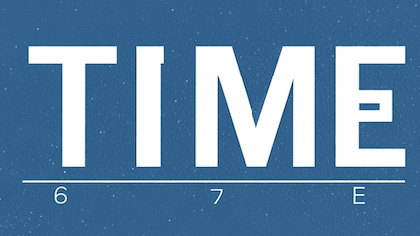
当前10位时间戳(秒)
-
当前13位时间戳(毫秒)
-
北京时间
-
转换结果:
-
10位时间戳
-
13位时间戳
-
本站在线提供:时间戳转换工具、北京时间戳转换、10 位时间戳转北京时间、13 位时间戳转换、各编程语言获取时间的戳方法。
时间戳的来历:时间戳是指从 1970 年 1 月 1 日 00:00:00 UTC(协调世界时)到特定时间的秒数或毫秒数。它被广泛用于计算机系统中,以方便地表示和比较时间。建议阅读
常见编程语言获取时间戳的方式:
Python:
import time
# 生成 10 位时间戳
ten_digit_timestamp = int(time.time())
print(f'Python 10 位时间戳:{ten_digit_timestamp}')
# 生成 13 位时间戳
thirteen_digit_timestamp = int(time.time() * 1000)
print(f'Python 13 位时间戳:{thirteen_digit_timestamp}')
# 将 13 位时间戳转换为日期时间
thirteen_digit = 1695174248803
date_time = time.strftime('%Y-%m-%d %H:%M:%S', time.localtime(thirteen_digit / 1000))
print(f'Python 转换后的日期时间:{date_time}')Java:
import java.time.Instant;
// 生成 13 位时间戳
long thirteen_digit_timestamp = Instant.now().toEpochMilli();
System.out.println(f'Java 13 位时间戳:{thirteen_digit_timestamp}');
// 将 13 位时间戳转换为日期时间(假设已有一个 13 位时间戳变量)
long javaThirteenDigit = 1695174248803;
Instant instant = Instant.ofEpochMilli(javaThirteenDigit);
java.time.ZonedDateTime zonedDateTime = instant.atZone(java.time.ZoneId.systemDefault());
System.out.println(f'Java 转换后的日期时间:{zonedDateTime}');C++:
#include <iostream>
#include <chrono>
int main() {
// 生成 13 位时间戳
auto now = std::chrono::system_clock::now();
auto timestamp = std::chrono::duration_cast<std::chrono::milliseconds>(now.time_since_epoch()).count();
std::cout << "C++ 13 位时间戳:" << timestamp << std::endl;
// 将 13 位时间戳转换为日期时间(假设已有一个 13 位时间戳变量)
long long cplusplusThirteenDigit = 1695174248803;
auto timePoint = std::chrono::system_clock::time_point(std::chrono::milliseconds(cplusplusThirteenDigit));
std::time_t timeT = std::chrono::system_clock::to_time_t(timePoint);
std::cout << "C++ 转换后的日期时间:" << std::ctime(&timeT);
return 0;
}JavaScript:
// 生成 13 位时间戳
let thirteen_digit_timestamp = Date.now();
console.log(`JavaScript 13 位时间戳:${thirteen_digit_timestamp}`);
// 将 13 位时间戳转换为日期时间(假设已有一个 13 位时间戳变量)
let jsThirteenDigit = 1695174248803;
let date = new Date(jsThirteenDigit);
console.log(`JavaScript 转换后的日期时间:${date.toLocaleString()}`);Go:
package main
import (
"fmt"
"time"
)
func main() {
// 生成 13 位时间戳
thirteen_digit_timestamp := time.Now().UnixNano() / int64(time.Millisecond)
fmt.Println("Go 13 位时间戳:", thirteen_digit_timestamp)
// 将 13 位时间戳转换为日期时间(假设已有一个 13 位时间戳变量)
goThirteenDigit := int64(1695174248803)
t := time.Unix(0, goThirteenDigit*int64(time.Millisecond))
fmt.Println("Go 转换后的日期时间:", t.Format("2026-01-02 15:04:05"))
}PHP:
<?php
// 生成 13 位时间戳
$thirteen_digit_timestamp = round(microtime(true) * 1000);
echo 'PHP 13 位时间戳:'.$thirteen_digit_timestamp.'<br>';
// 将 13 位时间戳转换为日期时间(假设已有一个 13 位时间戳变量)
$phpThirteenDigit = 1695174248803;
$dateTime = date('Y-m-d H:i:s', $phpThirteenDigit/1000);
echo 'PHP 转换后的日期时间:'.$dateTime.'<br>';
?>Rust:
use std::time::{SystemTime, UNIX_EPOCH};
fn main() {
// 生成 13 位时间戳
let now = SystemTime::now();
let since_epoch = now.duration_since(UNIX_EPOCH).unwrap();
let thirteen_digit_timestamp = since_epoch.as_millis();
println!("Rust 13 位时间戳:{}", thirteen_digit_timestamp);
// 将 13 位时间戳转换为日期时间(假设已有一个 13 位时间戳变量)
let rustThirteenDigit = 1695174248803;
let unix_time = std::time::Duration::from_millis(rustThirteenDigit);
let datetime = UNIX_EPOCH + unix_time;
println!("Rust 转换后的日期时间:{}", datetime);
}Ruby:
puts "Ruby 13 位时间戳:#{Time.now.to_f * 1000}"
# 将 13 位时间戳转换为日期时间(假设已有一个 13 位时间戳变量)
rubyThirteenDigit = 1695174248803
puts "Ruby 转换后的日期时间:#{Time.at(rubyThirteenDigit/1000)}"Shell:
# 生成 13 位时间戳
timestamp=$(date +%s%N | cut -b1-13)
echo "Shell 13 位时间戳:$timestamp"
# 将 13 位时间戳转换为日期时间(假设已有一个 13 位时间戳变量)
shellThirteenDigit=1695174248803
date -d @"$((shellThirteenDigit/1000))" +"%Y-%m-%d %H:%M:%S"
echo "Shell 转换后的日期时间:$(date -d @"$((shellThirteenDigit/1000))" +"%Y-%m-%d %H:%M:%S")"Swift:
import Foundation
// 生成 13 位时间戳
let swiftThirteenDigitTimestamp = Int64(Date().timeIntervalSince1970 * 1000)
print("Swift 13 位时间戳:\(swiftThirteenDigitTimestamp)")
// 将 13 位时间戳转换为日期时间(假设已有一个 13 位时间戳变量)
let swiftThirteenDigit = 1695174248803
let date = Date(timeIntervalSince1970: TimeInterval(swiftThirteenDigit/1000))
let dateFormatter = DateFormatter()
dateFormatter.dateFormat = "yyyy-MM-dd HH:mm:ss"
let formattedDate = dateFormatter.string(from: date)
print("Swift 转换后的日期时间:\(formattedDate)")C#:
using System;
class Program
{
static void Main()
{
// 生成 13 位时间戳
long thirteen_digit_timestamp = DateTimeOffset.UtcNow.ToUnixTimeMilliseconds();
Console.WriteLine("C# 13 位时间戳:" + thirteen_digit_timestamp);
// 将 13 位时间戳转换为日期时间(假设已有一个 13 位时间戳变量)
long csharpThirteenDigit = 1695174248803;
DateTime dateTime = DateTimeOffset.FromUnixTimeMilliseconds(csharpThirteenDigit).UtcDateTime;
Console.WriteLine("C# 转换后的日期时间:" + dateTime);
}
}R:
timestamp <- as.numeric(Sys.time())*1000
cat("R 13 位时间戳:", timestamp, "\n")
# 将 13 位时间戳转换为日期时间(假设已有一个 13 位时间戳变量)
rThirteenDigit <- 1695174248803
dateTime <- as.POSIXct(rThirteenDigit/1000, origin = "1970-01-01")
cat("R 转换后的日期时间:", format(dateTime), "\n")